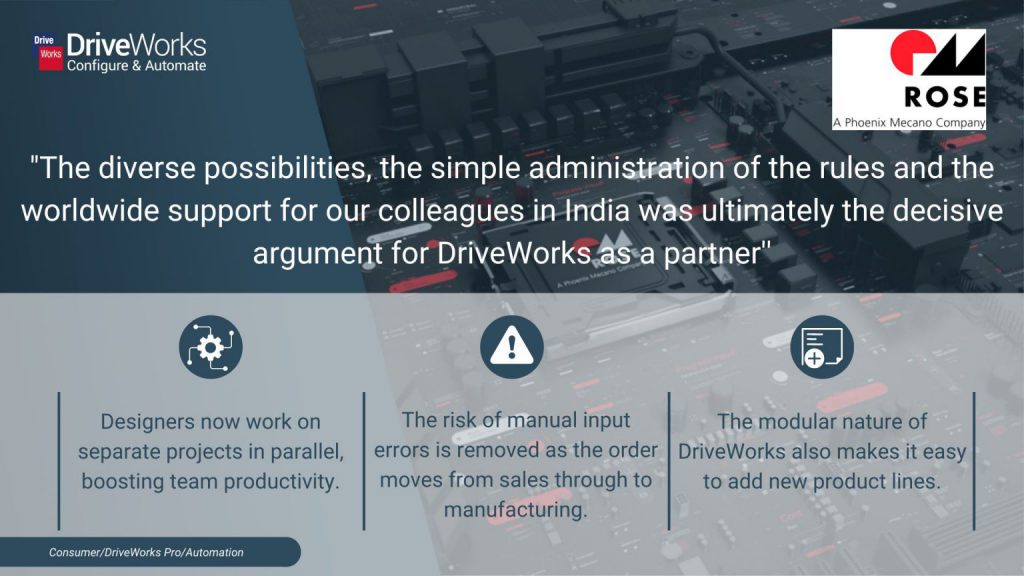
Common Myths When it Comes to Automating

Paul Gimbel
DriveWorks Sherpa
Paul is an enthusiast for innovation and automation. With industry experience and years of accumulated technical knowledge and insight, Paul is a highly experienced DriveWorks implementor. Since joining the DriveWorks team in 2022 as DriveWorks Sherpa, Paul has shared his in-depth product knowledge through articles, blogs, events, and in the DriveWorks forum.
The Power of Automation
Yes, I agree that design automation can be amazingly exciting. And yes, I also agree that DriveWorks is not only amazingly useful, but it’s also fun. And yes, I know that it’s easy to get swept up in the automation fever, wanting to make your computer do everything and anything to do with your design work.
I am indeed a DriveWorks nerd. I get it. And there is nothing wrong with having these grand visions of everything that DriveWorks can do to save your company time and money because the reality is that you probably can do all of it.
What I will bring up, as a word of advice, is to avoid the “all or nothing at all” mindset that prevents a lot of people from putting DriveWorks into production until everything is done.
Now I’m not going to go on about “perfection being the enemy of progress,” to quote the great Winston Churchill, because I still do believe that you should be focusing on creating a high-quality implementation. No, what I’m rallying against is the overabundance of new features that often prevents good implementers from finishing any features.
As Sherpaism #13 famously states, “100% design automation is generally unachievable”. And I don’t say that to be discouraging. No, I say that to help people set realistic expectations. There are a few things that prevent “100% design automation”.
What Prevents 100% Automation?
Your products will (or at least should) never stop changing and growing. For example, no matter how fast and luxurious Jaguar makes their automobiles, there will always be next year’s model. Likewise, no matter how complete your automation process is, you will always have to update it as your product changes, as new features or options are offered, and when new product lines are introduced.
It is often the case that there may be some aspects of your product that just cannot be automated. (Gasp, I know, right!) Automation requires predictability and repeatability, and sometimes that’s just not possible. Customers may have customizations that require a human to design them.
In some cases, even if something is repeatable, sometimes it’s just not worth automating. If you have a feature that comes up once every six months, how much of your time is it worth to automate that feature?
We always have to balance the effort required to implement the feature with the amount of time that we will save over the long run.
Why We Shouldn’t Automate Everything
But we get it, automating is fun. (No, seriously, we really do get that. You should see the stuff that we automate around here!) It’s hard sometimes to control ourselves, especially when we come up against a really good challenge.
The key to all the best implementations is the constant reassessment of where our time is best spent. Automation is all about saving time, money and effort.
Sometimes, it’s best to leave a small or infrequent task to be performed manually, so that we can focus on automating other products, processes, or outputs that can generate more value for the business.
How are Manufacturers Using DriveWorks Software to Automate Areas of Their Business?

ROSE Systemtechnik GmbH is known for system solutions in the industrial housing sector.
Since implementing DriveWorks, ROSE Systemtechnik GmbH has achieved a number of goals:
- Automating their design process
- Saving engineering time spent on repetitive and low value add activities, freeing up time for innovation.
- Using the intuitive DriveWorks form designer, the ROSE team built a custom User Interface (UI) to input product requirements.
- Rules set by the designers guide users through the product configuration, only displaying valid options.
Find out more about how ROSE Systemtechnik GmbH is automating with DriveWorks here.